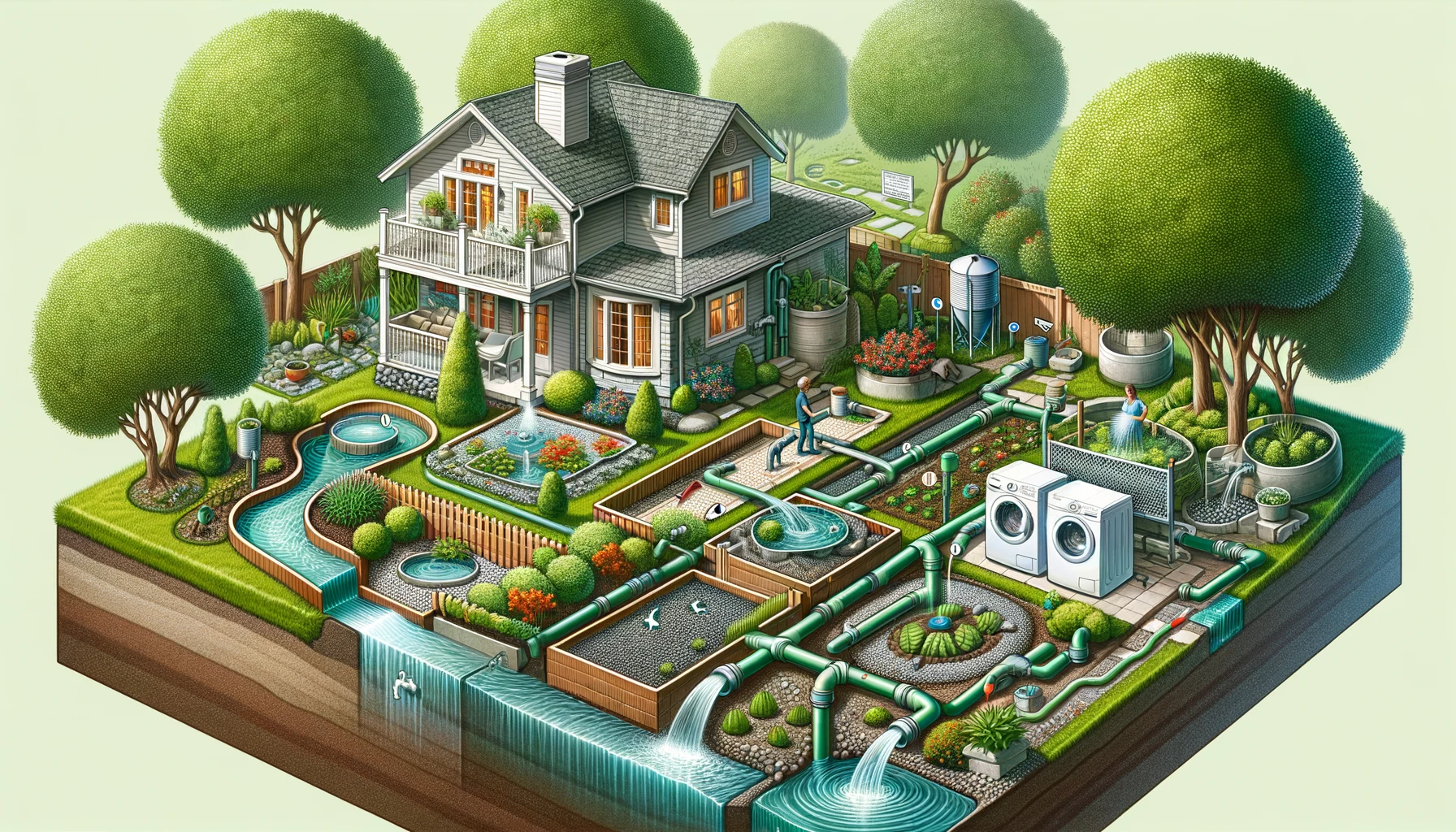With the Bay Area’s variable rainfall and frequent droughts, the integration of residential greywater reuse systems is a key sustainable solution. These systems recapture water from sinks, showers, and washing machines for landscape irrigation, contributing significantly to conservation efforts. Moreover, reusing greywater on site not only conserves water but also reduces the load on sewer systems and minimizes the overall environmental footprint.
Here are 7 methods for residential greywater reuse systems for water wise landscape irrigation:
- Laundry-to-Landscape Systems: These systems filter soapy water from laundry machines to subsurface areas. They use gravity flow pipes for efficient irrigation.
- Branched Drain Systems: This method directs washing machine water to mulch basins. It effectively nourishes trees and shrubs.
- Wetland and Pond Systems: Shower and sink water can feed into constructed wetlands or decorative ponds. These systems naturally filter the water before it is reused, showcasing an eco-friendly water treatment method.
- Sand Filters: These filters are adept at clarifying greywater from kitchen sinks, making it suitable for various irrigation needs.
- Contoured Landscape Channels: Strategically designed channels in the landscape guide surplus household water into basins, effectively capturing and reusing greywater.
- Storage Tanks: Capturing filtered water in storage tanks allows for on-demand garden distribution. Pumps and hoses facilitate this process, ensuring efficient water use.
- Gravity-fed Dispersal Pipes: These pipes distribute wash water directly to the deeper roots of trees, bushes, and berries, ensuring that water reaches where it’s most needed.
As Bay Area residents increasingly adopt eco-conscious whole-home reuse systems, leveraging greywater to nourish landscapes emerges as a readily implementable daily conservation strategy. This approach not only saves water but also supports a lush, vibrant garden.
What creative solutions have you implemented to recycle household water on-site? Please share your experiences and insights below, contributing to our community’s growing knowledge in sustainable living practices.

